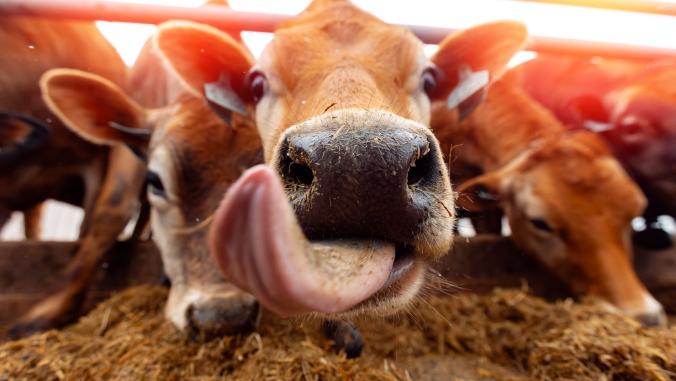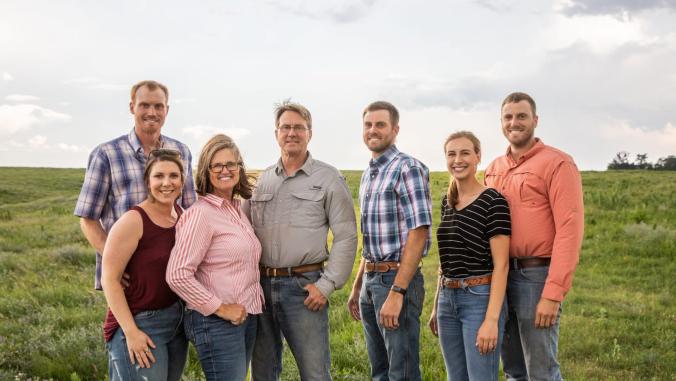State of Green Business: Collaboration becomes an accelerator
<p>By working together, companies are driving change within sectors and supply chains.</p>

Paper clips photo by Gordo25 via Shutterstock
One of a series of excerpts from the 2014 State of Green Business report (download here).
One challenging reality of sustainable business is of companies reinventing wheels. Nearly every company, it seems, finds its own solution to its environmental challenges and opportunities, sometimes creating, out of whole cloth, programs and processes that previously have been created by dozens if not hundreds of other firms.
There's good reason for this. Every company comes to sustainability with a different set of drivers and challenges. In some cases, sustainability is driven by competition — head-to-head combat among competitors to tell the greener story. In other cases, it's customers, particularly B-to-B customers or large institutional purchasers, that are driving suppliers to reduce environmental impacts. In still others, it's the ability to attract and retain talent, to be seen as the "employer of choice" in a given industry. Or it's the desire to head off regulations by creating voluntary initiatives, or to be seen as an innovator. Some leadership companies are driven by their CEOs' passions and commitments. Every company has a different appetite for change, or is starting their "sustainability journey" from a different place.
With such a diversity of factors, corporate sustainability is rarely a one-size-fits-all or cookie-cutter approach, despite the insatiable appetite companies seem to have for "best practices" on any number of topics.
In that context, company collaboration would seem challenging, if not impossible. But it's proving to be a potent tool for accelerating change within a sector, and particularly within a supply chain.
Examples of collaborative success
Consider McDonald's, which recently set itself on a course to source "sustainable beef" in the coming years, despite that there's no definition yet. Given that the beef supply chain is one of the most complex — more than a million ranches worldwide raise cattle for meat and dairy — and given that McDonald's represents only 1-2 percent of beef purchases in most countries where it operates, it couldn't act alone. 
The result: the Global Roundtable on Sustainable Beef, involving members of the entire beef value chain, along with leading nonprofit groups such as WWF and the Rainforest Alliance. In late 2013, the group sent out the first draft of principles and criteria for sustainable beef.
That's just one example of the growing collaboration by and among companies to address systemic challenges. In recent years we've seen the Round Table on Responsible Soy, Roundtable on Sustainable Palm Oil, Roundtable on Sustainable Forests, Better Cotton Initiative, Initiative for Responsible Mining Assurance and Sustainable Manufacturing Roundtable. The trade group BSR boasts more than a dozen collaborative initiatives on everything from pharmaceuticals to fuels. And, of course, The Sustainability Consortium includes more than 100 consumer goods companies, along with suppliers, advocacy groups, government and academic institutions, all collaborating to design systems and metrics to effectively and consistently assess consumer products through the lens of sustainability.
Talk about a collaborative economy!
Challenges and opportunities
Few of these alliances are simple or easy. They require getting the right people and organizations to the table, having a clear vision, creating effective governance and setting the right goals. They take leadership, patience, perseverance and lots of communication. They don't always work: Collaborations can spin their wheels, perhaps for years, before running out of gas.
But when they do work, they can advance the field and accelerate progress. The Roundtable on Sustainable Palm Oil (RSPO), the largest such group, with 1,300 members — growers, processors, traders and retailers along with environmental activists and banks — has become the model for the multi-stakeholder approach to sustainability. The group has helped several European countries pledge to import 100 percent certified palm oil by 2015.
Still, even successful collaborations have limits. RSPO represents only about 15 percent of the global palm oil market, and the group has professed barriers to selling certified palm oil at a premium sufficient to persuade industry players to become sustainably certified. But it continues to push the rock uphill far more effectively than any single player could.
Such collaborations are becoming a standard tool for business. According to a 2013 survey by MIT and the Boston Consulting Group, nearly 40 percent of respondents report increasing collaboration with customers and suppliers on sustainability matters. Thirty-four percent said their companies have stepped up collaboration with governments, policy makers and regulators. "Working collectively, organizations can be more systematic and sophisticated in tackling significant sustainability issues across the value chain — from supply to finished product," it concluded.
In some cases, companies are working with competitors, once unheard of. General Motors and Honda have partnered to develop hydrogen fuel cells for their cars. Ocean Spray and Tropicana, beverage companies based in Massachusetts and Florida, respectively, found ways to take advantage of empty delivery trucks to back haul each other's product along the U.S. East Coast, saving fuel and money. Nestle has partnered with Coca-Cola, Danone, Ford, H.J. Heinz, Nike, P&G and Unilever to form the Bioplastics Feedstock Alliance, encouraging the development of plastics from plant matter.
It's the new reality, and frankly, it's refreshing: companies recognizing that progress accelerates when companies pool their best ideas, resources and clout. If only we could teach our public officials to do the same.
Paper clips photo by Gordo25 via Shutterstock





